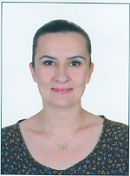
Emine Gul Cansu-Ergun,
Baskent University, Turkey
Biography
Emine Gul Cansu-Ergun is an Assistant Professor at Baskent University and is teaching General Chemistry for engineering students. She has obtained her PhD in Polymer Science and Technology Program at Middle East Technical University, Turkey in 2015.Her research interests includes synthesis, characterization and electrochromic device application of conducting polymers and electrochemistry.
Abstract
Organic electrochromic polymers are in full of consideration due to their tunable electro-optical properties. Second generation electrochromes includes an electron deficient molecule with an electron rich one in the same polymer backbone, resulting in an enhanced conjugation and better optical, electrochemical and thermal properties. These properties can be altered by changing the donor and the acceptor groups in the monomer structure. Moreover, electrochromic polymers are lightweight and low-cost materials. With having those features, they have been using in many fields such as electrochromic devices, organic light emitting diodes, organic solar cells, field effect transistors, screens, biosensing applications and many others. In this study, effect of electron donor unit on the electrochemical and optical properties of an electrochromic polymer was studied. The most well-known donors; selenophene, thiophene, 3, 4-ethylenedioxythiophene and 3, 4-propylenedioxythiophene donors were combined with the same acceptor unit (2, 2-dimethyl benzimidazole) and the resulting monomers were electrochemically polymerized. The electrochemical and spectrochemical behaviors of the polymers were revealed and compared.